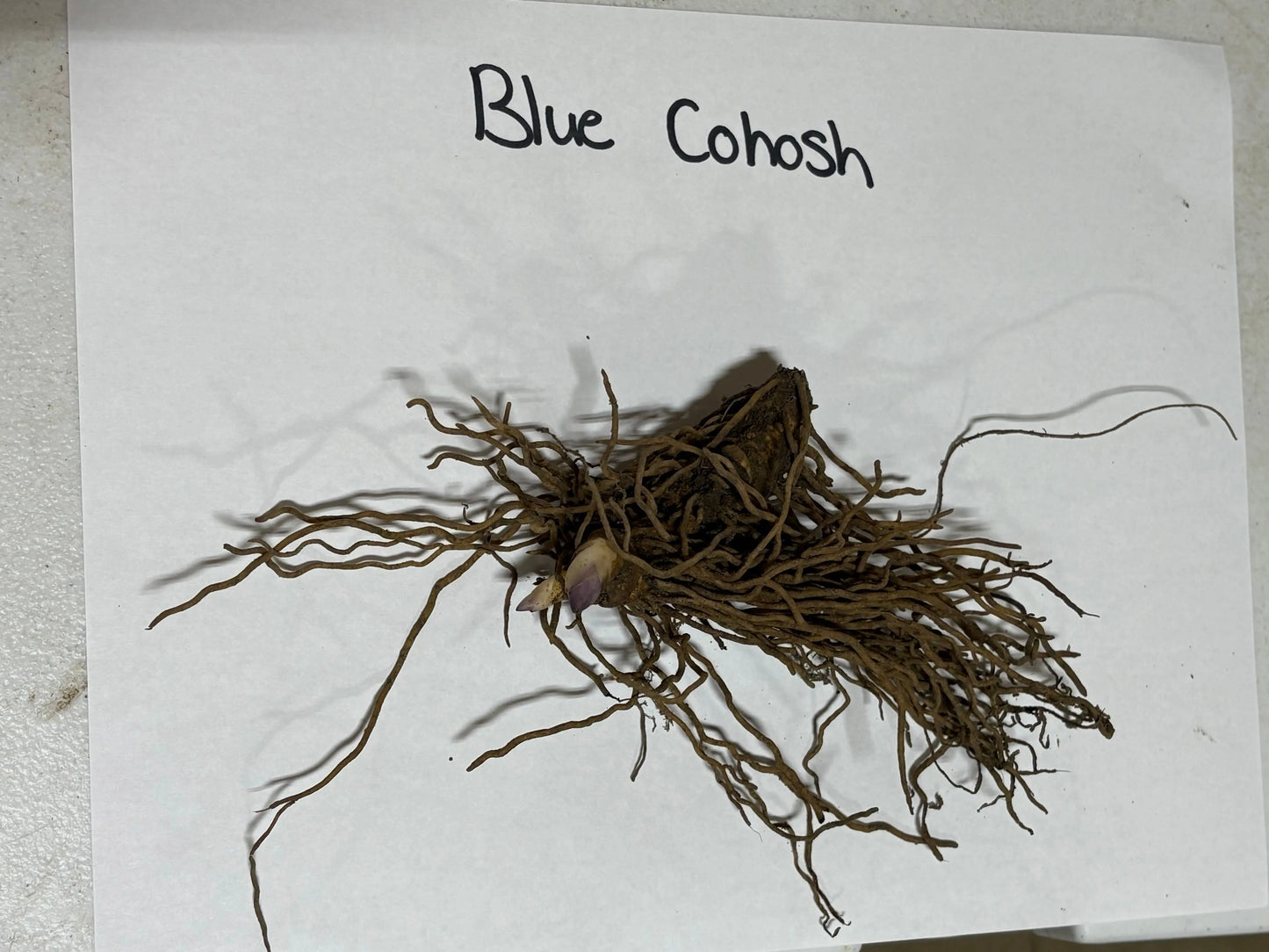



Removes & Absorbs Toxins
Improves Air Quality
Low maintenance & easy to grow
Blue Cohosh Plants Also Known As Caulophyllum thalictroides Wholesale
The Blue Cohosh perennial grow abundantly in the eastern region of the United States, where it receives tons of nourishing rain and can be slightly shaded by dense forests. Its distinctive quality is the azure fruit, which it produces in upright clusters during summer.
Blue Cohosh Plants Are A Member Of The Barberry Family
A member of the Barberry family, it was commonly called Squaw Root by Native Americans of the past. This perennial will grow in all sorts of conditions. You can opt for planting a hedge of Blue Cohosh plants, or you can opt for planting an individual flower in a single pot.
Stunning Azure-Green Foliage
This wildflower boasts widespread azure-green foliage that helps dominate any landscape. As spring approaches in early April, this highly desirable type will produce clusters of yellow flowers at branching "Y"s of its stem. Each flower is about half an inch in diameter and has six-pointed sepals.
Golden Yellow Blooms
This creeping rootstock will eventually give away its beautiful clusters of yellow flowers in exchange for its berry-like azure fruit. These deep-colored berries will attract a wide variety of wildlife, including birds and even gray squirrels. As the days shorten in the late fall, this perennial's azure-green foliage will transition to a bright greenish-gold hue.
Hardy To Many Climates
These Plants are tolerant of various climates, and its distinctive accents allow it to create necessary contrasts when put with other species. Its large rootstock will produce the required shade for other garden flowers to flourish. This long-lived type is needed for the garden, landscape design, or bordering walkways.
This Plant is actually a super low-maintenance perennial for shade. It’s formally known as Caulophyllum thalictroides blue cohosh—quite a mouthful, right? Look for the distinctive compound leaves to identify it in the forest. It gives you subtle blue-green berries in a shaded spot, which is a nice touch. The Blue Cohosh Plant is great for any woodland garden because it loves moist, rich soil.

This Is How Your Plants Will Look upon Delivery
Bloom Season
Bloom/Foliage Color
White
Shipping date depends on the date displayed and chosen when you order from the product's page.
We do not offer warranties on products after 5 days past receiving your plants.
By signing up, you agree with our privacy policy.






